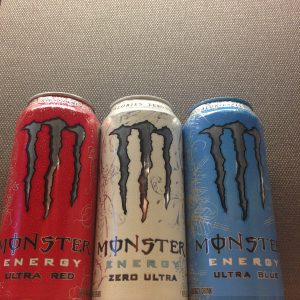Caffeine and Your Health
What is Caffeine?
Caffeine is a chemical found naturally in coffee beans, tea leaves, cocoa beans (used to make chocolate) and kola nuts (used to flavor cola soft drinks). It is also commonly added to other products like energy drinks, soda, and medication. Caffeine makes you feel more awake and alert because it is a drug that stimulates the nervous system. It is recommended that adults consume no more than 400 mg of caffeine daily, and teens no more than 100 mg daily.
Caffeine Content of Common Beverages
| Beverage | Serving size | mg Caffeine |
| Coffee | 8 oz | 115-150 |
| Energy drink | 8 oz | 80 |
| Cola | 12 oz | 35-45 |
| Tea | 8 oz | 30-50 |
Side Effects of Too Much Caffeine
- Headache
- Upset stomach
- Increased urination
- Insomnia
- Rapid heartbeat
- High blood pressure
- Anxiety
- Restlessness
Ways to Prevent Caffeine Dependency and Addiction
- Monitor your daily intake of caffeinated beverages
- Choose caffeine-free alternatives to your favorite beverages, such as decaf coffee or herbal tea.
- Dilute caffeinated beverage with water or carbonated water
- Reduce intake of caffeinated drinks gradually to reduce withdrawal symptoms (drowsiness, irritability, headaches)
- Find other ways to stay energized like exercising or changing your sleep schedule
Reminder:
- Caffeine is a stimulant and should NEVER be mixed with alcohol or medication
- Pregnant and breastfeeding women, teens and young children should limit or avoid caffeine
References:
https://medlineplus.gov/caffeine.html




